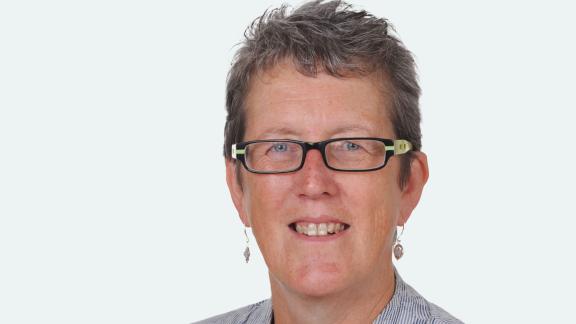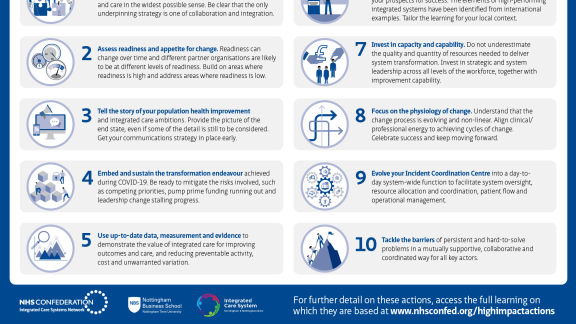We must walk in each other’s shoes to get systems working

Last year, as we were developing our plans to implement the new statutory elements of our integrated care system, I thought we could be ready for April. But the new timetable of starting in July provides important preparation time.
It would be easy to drift into using this time to focus on structures, governance and processes. Yes, these are necessary, but insufficient. I am also conscious that transitions are challenging and potentially risky, but we have considerable experience to draw on from the past ten years. Like other systems we have a Transitions and Risk Committee, chaired by a non-executive, which seeks assurance on all aspects of transition and provides this to the current integrated care system board and clinical commissioning group. So, this is not the focus for my thinking time.
Bringing integration to life
It is vital that we understand the paradigm of local and national democracy to truly make system and place work effectively
The real opportunities lie with our ability to truly effect change through the integration of people, teams, organisations, professions, citizens and patients. How we bring our purpose and objectives for integration alive – so that in one, five or ten years we can see and feel the reduction in health inequalities and improvements in care outcomes – is one area I am sure we all find challenging.
For example, how do we bring together a nationally funded, nationally led NHS with the locally funded and democratically led local authorities? This is not something written down in a guidebook but will require us to ‘walk in each other’s shoes’; to understand as much as we can about less familiar sectors, listen to and exploit the strengths of both.
Understanding the culture and ways of working of each part of our system will help. There are many important partners who are key to system working: citizens, community voluntary services, Healthwatch, social care and primary care, for example. But it is vital that we understand the paradigm of local and national democracy to truly make system and place work effectively. Good and respectful relationships will, as always, be key.
One of the things we at Nottingham and Nottinghamshire ICS do to support relationships is to regularly meet as trust chairs and local authority elected members to informally discuss key issues. This serves several purposes, not least that we get to know each other, and allows us to engage as partners in a safe space on a ‘no-surprises’ basis. This provides a supportive umbrella for the relationships that are most important in bringing about change very locally, at place and neighbourhood.
The primacy of place
In Nottingham and Nottinghamshire, we refer to an inverted pyramid which puts the integrated care partnership (our ‘guiding mind’) and integrated care board in an enabling position at the bottom of the pyramid, with place, provider collaboratives, neighbourhood, and citizens in the key roles. So, a second area of challenge is how we bring the different parts together and measure progress overall for our communities. The ‘golden thread’ from the citizen and patient, through place to integrated care system.
We regard our four places in Nottingham and Nottinghamshire (with their more local communities) as the prime foundations for delivery of the objectives. It is at place and local community where real change will happen, driven by the needs and views of local citizens.
We have been clear about the primacy of place, but one of the challenges is how we connect the local improvements in health and reduction of inequalities, to the overall integrated care system outcomes. We have asked the leaders in each place to describe how their programmes for local focus link to our overall outcome’s framework. This allows for local needs to drive change but connects to the key objectives and in the future, the integrated care strategy.
Learning from others
Culture, behaviour and relationships remain the bedrock for positive change
In grappling with some of these and other issues, it’s been invaluable to hear from ICS colleague chairs and chief executives about what their take and approach has been. While we are all different, there are common attributes for many of us, and being able to discuss my thinking in the safe environment of the NHS Confederation’s ICS Network has made such a difference.
I value the added dimension of support, joint exploration of challenges and networking that membership of the ICS Network bring, which will increasingly include chairs of integrated care partnerships, and widen those valuable discussions.
This is an exciting time in the development of integrated care, something I have been hoping for throughout my leadership career. Culture, behaviour and relationships remain the bedrock for positive change, but we can support and enable this with some simple principles and aims.
Dr Kathy Mclean OBE is the independent chair of Nottingham and Nottinghamshire ICS. Follow her on Twitter @KathyMcLean13


